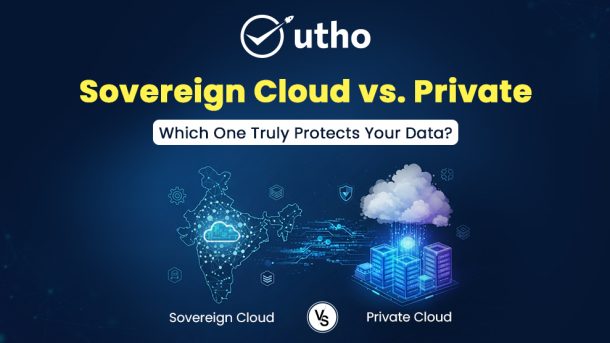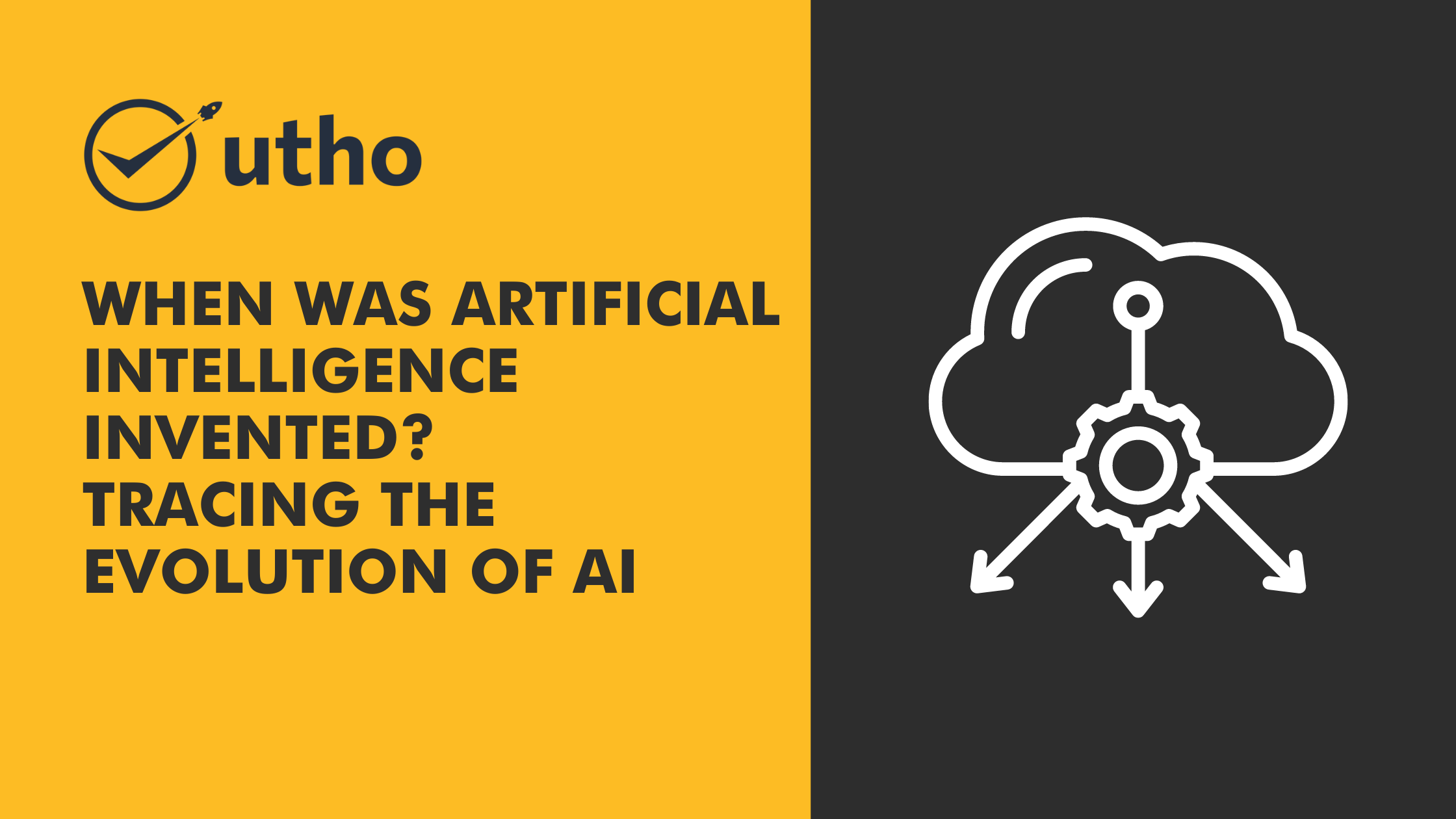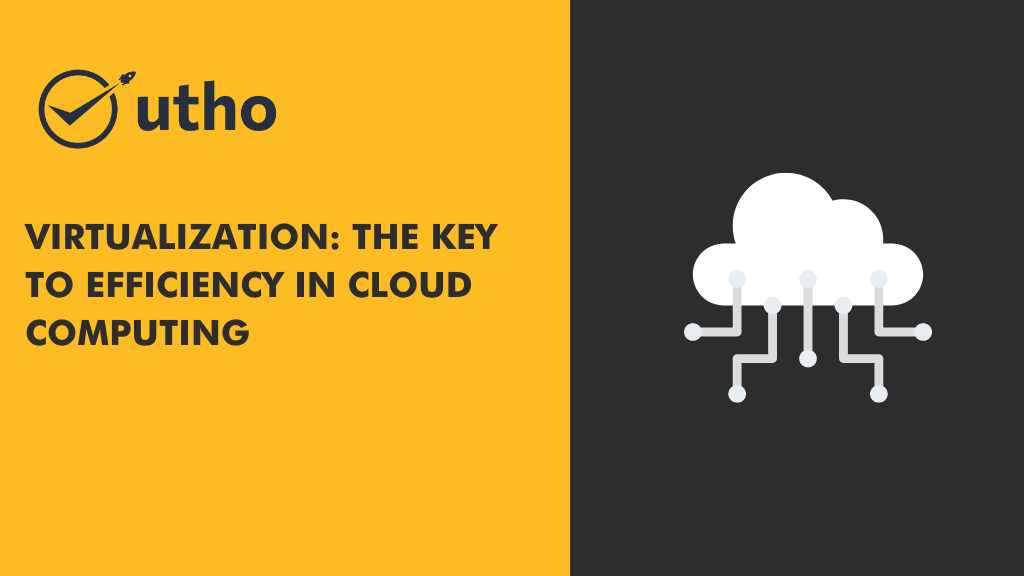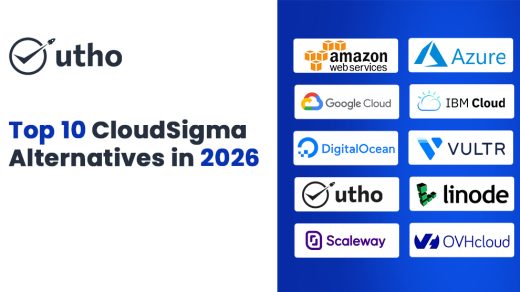In today's digital age data has become as valuable as money. Every business whether it is a small startup or a large company runs on data. If data is safe the business works smoothly. But if data is stolen, leaked or misused it can cause big losses and sometimes even break the whole system.
The risks around data are growing every day. Cyberattacks are increasing. Hackers are becoming smarter. Data protection laws are becoming strict in many parts of the world. Many countries are also focusing on national sovereignty. This means they want the data of their people to stay inside their own country and be protected under local laws.
Because of all these reasons choosing the right type of cloud has become a very important decision for every business.
In this discussion two types of cloud models are often compared the most. These are Sovereign Cloud and Private Cloud. Both of them are designed to give more safety and more reliability compared to a normal public cloud. They mainly focus on three important things:
- Security – keeping your data safe from hackers leaks and misuse
- Compliance – making sure your systems follow the required laws and industry rules
- Control – deciding who can see use and manage your data and systems
The main question is simple. Which one truly protects your data better
In this blog we will explain both these models in very clear and simple words. You will understand what each model is, where it works best, where it struggles and how it manages security and legal requirements. By the end you will have a clear and detailed understanding that will help you decide which cloud model is the right choice for your organization.
What is a Private Cloud?
A Private Cloud is a cloud made for only one organization. It is not shared with anyone else. In a Public Cloud many companies use the same servers and resources. But in a Private Cloud everything is used by just one company.
This means all the servers' storage and computing power belong only to that company. Because of this the company gets more safety, more control and more freedom to design the system the way it wants.
Key Characteristics of Private Cloud
1. Dedicated Infrastructure
In a Private Cloud all resources are reserved only for one company. No other company can use them. This makes the system more safe and reliable because outsiders cannot enter or disturb it.
2. Higher Control
The company has full control over its cloud. It can decide how the setup will look, what security rules to use and what policies to follow.
3. On Premises or Hosted
A Private Cloud can be built inside the company’s own office data center where the company manages everything itself. It can also be hosted by another provider but still used only by that one company.
4. Custom Security Policies
Every company has different security needs and laws to follow. In a Private Cloud the company can create its own security rules that fit its requirements and the regulations it must follow.
5. Cost Factor
A Private Cloud is usually more expensive than a Public Cloud. This is because the company has to pay for all the servers hardware storage and maintenance on its own. Nothing is shared so the cost is higher.
What is a Sovereign Cloud
Sovereign Cloud is a special kind of cloud in the computer world. It was made to fix one big issue called data sovereignty. Data sovereignty simply means that the data must stay in the same country where it is created. It also means that the rules and laws of that country will always control the data.
This type of cloud is built to follow very strict rules of the nation. The main goal is to keep the data safe and fully protected. It gives people and companies confidence that their data will not go outside the country and no outsider will control it.
Defining Sovereign Cloud
Sovereign Cloud makes sure that data is stored only inside the country. The data is also processed and managed inside the same borders. It always follows the local rules and laws of the country. This stops any foreign company or foreign government from seeing or using the data without proper permission.
In very simple words Sovereign Cloud means that a country keeps full control over its own data. No other nation can secretly take it or demand access to it.
Main Features of Sovereign Cloud
1. Data Stays in the Country
The most important point is that data never leaves the country. Storing, processing and managing all happen inside the national borders. This gives complete ownership of the data to the country and its people.
2. Protection Through Laws
Sovereign Cloud also gives legal protection. For example in the United States there is a rule called the CLOUD Act. It allows U.S. authorities to ask for data from cloud providers even if the data is stored outside the U.S. But if the data is in a Sovereign Cloud of another country the U.S. law cannot reach it. The local laws of that country will protect the data and stop any foreign request.
3. Supports National Security
Sovereign Clouds are often built with the help of the country’s government. This makes sure the cloud supports the security of the nation. It keeps very important data like defense records, health data and finance data safe from hackers or outside threats. This is important because data is like an asset for a nation. If it is stolen or misused the nation can become weak.
4. Follows All Compliance Rules
Compliance means following the law properly. Sovereign Cloud is designed to meet all such rules. This includes GDPR in Europe, HIPAA in healthcare and other local data rules in different countries.
This is very helpful for industries like:
- Hospitals and healthcare
- Banks and finance companies
- Government offices
In these fields following the law is not a choice. It is a must. That is why Sovereign Cloud is the best option for them.
5. Built Together With Local and Global Help
Many times Sovereign Clouds are made with the help of global cloud companies who provide modern technology. But the control and power of the cloud always stays with the local company or the local government. This gives a balance. On one side the country gets the latest technology. On the other side it keeps full independence and legal safety of its data.
In Short
Sovereign Cloud is not just about computers or technology. It is about safety, trust and independence. It makes sure the data of a country always stays inside its own borders. It protects the data from outside control and always follows local laws.
With a Sovereign Cloud a nation can keep full control of its data and be sure that it is always safe from foreign powers.
Private Cloud vs. Sovereign Cloud: A Deep Comparison
| Feature | Private Cloud | Sovereign Cloud |
| Primary Purpose | Security, performance, and control for one organization | National compliance, sovereignty, and legal protection |
| Location | On-premises or hosted (could be outside the country) | Always within national borders |
| Control | Full control by organization | Shared control (cloud provider + national governance) |
| Compliance | Custom compliance based on needs | Strict compliance with national/regional laws |
| Data Access | Only organization controls access | Access governed by local law + provider restrictions |
| Cost | High (infrastructure + management) | Moderate to high depending on provider |
| Scalability | Limited to infrastructure capacity | Highly scalable (similar to public cloud) |
| Use Cases | Enterprises with sensitive workloads, regulated industries | Governments, defense, healthcare, finance with sovereignty needs |
Security in Private Cloud
The biggest power of a Private Cloud is the full control it gives to a company. Private Cloud is made only for one company and no one else can use it. Because of this the company can set up its own rules and its own security plan.
In a Public Cloud many different customers share the same system. But in a Private Cloud only one company is using it. This gives complete freedom to make strong protection in the way the company wants.
Security Advantages of Private Cloud
1. Own Firewalls and Rules
In a Private Cloud the company can make its own firewalls and write its own security rules. A firewall works like a gate that decides which data can enter and which data should be blocked. With this freedom the company can build a security system that fits its needs and matches the rules of its industry.
2. No Sharing With Outsiders
Since no one else is sharing the resources the Private Cloud has a natural safety layer. In a Public Cloud sometimes attacks spread from one customer to another. But in a Private Cloud this risk does not exist. This isolation makes it more secure.
3. Company’s Own Data Center
Some businesses want even stronger security. For them a Private Cloud can be built and managed inside their own office data center. In this setup all servers storage and networks stay inside the company’s control. This reduces outside risks and keeps the data extra safe.
4. Control Over Encryption
Encryption is a way of locking and unlocking data. In a Private Cloud the company keeps full control of the encryption keys. This means only they can decide how their data is locked and who can unlock it. This gives extra ownership and stronger safety for important information.
Security Limitations of Private Cloud
Even though Private Cloud is very safe it is not perfect. There are some challenges:
- It needs skilled experts. Security will only be good if the company has a strong team to build and manage it.
- Safety depends on regular care and maintenance. If the company does not take care of its systems properly new risks can appear.
- It can still face insider threats or mistakes. If employees misuse their access or if the systems are set up the wrong way the data can still get exposed.
In Short
Private Cloud gives strong control and powerful protection because it is used only by one company. It allows full freedom to set rules, firewalls and encryption. But it also needs a good team, regular care and proper setup to stay safe.
Security in Sovereign Cloud
The Sovereign Cloud looks at security in a very different way. It does not just use technology but also focuses on laws and national control. The main promise of Sovereign Cloud is data independence. This means that all important information will always stay inside the country where it was created and will always follow that country’s laws.
Even though it uses the same modern technology as other clouds the special part of a Sovereign Cloud is that it gives full legal and national safety.
Security Advantages of Sovereign Cloud
1. Legal Safety
One of the biggest benefits of a Sovereign Cloud is legal protection. Because the data is stored and managed only under local laws no foreign government can demand or touch it.
For example in the United States there is a rule called the CLOUD Act which allows U.S. authorities to ask for data from cloud providers even if the data is stored outside the U.S. But if the data is inside a Sovereign Cloud in another country this rule does not apply. That country’s law will protect the data and stop any outside demand.
2. Built-in Rule Following
Sovereign Clouds are made in such a way that they automatically follow local rules and regulations. This means organizations do not have to worry about whether they are meeting laws like GDPR in Europe, HIPAA in healthcare or other national data protection rules. The cloud system itself is designed to always stay compliant.
3. Shared Security
Most of the time the security of a Sovereign Cloud is not handled by one single party. It is managed together by the cloud provider and trusted local partners. This joint effort gives businesses strong professional-grade security without making them handle everything on their own.
At the same time local partners and authorities keep an eye on the system to make sure independence and accountability remain in place.
4. Modern Performance
Even though Sovereign Cloud focuses mainly on legal independence it is still built on modern cloud technology. This means it offers features like scalability (easy expansion when more resources are needed) and high uptime (keeping services available without breaks).
So businesses not only get legal safety but also smooth performance for their daily work.
Security Limitations of Sovereign Cloud
While a Sovereign Cloud is powerful it also has some limits:
- It usually gives less freedom than a Private Cloud when it comes to setting custom security rules.
- Organizations must trust the Sovereign Cloud operator to keep the data safe and compliant.
- Since it is still a new concept it may not yet be available in all countries or regions.
In Short
Sovereign Cloud protects data by mixing technology with strong legal safety. It makes sure data stays inside the country and follows local laws. It also offers modern performance and shared responsibility for security. However it gives less freedom for customization and is not available everywhere yet.
- Compliance Considerations
One of the main reasons why organizations choose between Sovereign Cloud and Private Cloud is following the laws and rules about data protection. - Private Cloud
A Private Cloud can be changed to follow rules like GDPR HIPAA or PCI DSS Companies can make their own policies and systems to be sure they are following the rules But the responsibility is fully on the company This means the company has to regularly update the cloud check everything and show proof that their cloud meets these rules. - Sovereign Cloud
A Sovereign Cloud is made with following rules in mind It automatically follows the local data protection laws because everything is stored and managed inside the country This takes away a big part of the work from the company and gives them peace that they are working within the law.
For areas like healthcare, government defense and finance where the rules are very strict the Sovereign Cloud gives extra safety. It makes sure that important data never leaves the country and always stays under the control of the nation.
Cost Factor Private vs Sovereign Cloud
- Private Cloud
Private Cloud is usually more expensive because all infrastructure is dedicated. The company has to spend money on servers, storage networking and skilled IT staff to manage and maintain it. It is expensive but gives the company full control. - Sovereign Cloud
Sovereign Cloud usually follows a pay-as-you-go model like public cloud Companies only pay for what they use This lowers upfront costs But it can still be a little more expensive than normal public cloud because it includes extra rules for compliance governance and legal protection.
- Use Cases
Every cloud model works better for some types of organizations. Different types of businesses and institutions have different needs for security control and data management. It is important to understand which cloud model fits best for each situation. Lets look at Private Cloud first and then see where Sovereign Cloud is the stronger choice. - Private Cloud Best For Large enterprises with custom security needs
Big companies that have very specific requirements for security usually prefer Private Cloud These companies may have special rules for protecting their data or may deal with sensitive information that cannot be shared easily With Private Cloud they can design their own firewalls and security systems They can set up their own policies for who can access the data and how it is stored and managed This gives the company freedom to create a system that matches exactly what they need They can choose every aspect of their cloud environment from how servers are configured to how applications run and how data is backed up This setup can take more time and cost more money but it gives complete control and security that large organizations need. - Organizations wanting maximum control
Private Cloud is also ideal for businesses that want total control over their IT environment Companies can decide exactly how the servers storage and software work They do not have to rely on any outside provider for changes or updates This is useful for organizations that want to make sure nothing is handled by a third party and everything stays inside the company They can monitor and manage the cloud themselves and make adjustments whenever needed This kind of control can be very important for companies that have complex systems or special workflows that must always work in a certain way. - Businesses handling highly sensitive data
Private Cloud is very useful for businesses that handle highly sensitive data This includes intellectual property research and development data or financial information These types of information are very valuable and require strong protection By keeping this data in a Private Cloud companies can isolate it from other users and reduce the risk of leaks or attacks The dedicated environment makes it easier to implement advanced security measures and monitor any unusual activity This is especially important for companies that cannot afford mistakes or breaches because their data is the core of their business. - Sovereign Cloud Best For Governments and defense sectors
Government departments and defense organizations have very strict rules about where their data can go They must make sure that no sensitive information leaves the country Sovereign Cloud is perfect for them because it stores and manages all data within national borders It also follows local laws automatically This removes a big burden from the organization They do not have to worry about compliance because the cloud is designed to follow all the necessary rules This provides peace of mind and stronger protection for critical national data. - Healthcare and finance industries
Industries like healthcare and finance face very strict rules for data protection They have to follow laws about keeping patient records medical data and financial information safe Sovereign Cloud ensures that all data stays inside the country and under legal protection It reduces the chance of mistakes or violations It also makes it easier for companies to show regulators that they are following all rules Everything from storing data to transferring it is handled safely and legally This makes the cloud a safe choice for hospitals banks insurance companies and other institutions that deal with sensitive information every day. - Organizations worried about foreign surveillance
Some companies worry about foreign surveillance or geopolitical risks They want to make sure that no foreign government or organization can access their data without permission Sovereign Cloud provides this kind of safety By keeping all data inside the country and following strict local laws it ensures independence and security Companies can trust that their information is controlled fully by national rules and cannot be accessed by foreign entities This is very important for organizations that work in sectors like technology research government projects or defense where data privacy and independence are critical.
Which One Protects Data Better
The answer depends on what your company cares about the most. Different businesses have different priorities Some care more about control and customization while others care more about following laws and keeping data inside the country.
Private Cloud for Customization and Control
If your main goal is to have full control over how your cloud works then Private Cloud is better It lets you design everything the way you want You can set up your own rules for security decide who can use the servers and storage and make sure everything is separated from other companies This is very useful for companies that want to keep their data completely private and isolated from everyone else With Private Cloud you can choose exactly how software and applications run You can manage updates and maintenance the way you like This gives freedom and complete control over all resources Companies that have special workflows or highly sensitive information often choose this option because it allows them to manage their environment exactly how they want.
Sovereign Cloud for Legal Safety and Data Protection
If your biggest concern is following laws keeping data inside your country and protecting it from foreign access then Sovereign Cloud is the best choice Sovereign Cloud keeps all your data inside national borders and follows local laws automatically This means you do not have to worry about legal compliance or whether your data might be accessed by foreign entities It also gives trust that sensitive information like financial records medical data or government information will stay safe and under national control This is very important for industries like finance healthcare government and defense where rules are strict and data protection is critical.
Hybrid Approach for the Best of Both Worlds
In many real-life cases the smartest choice is to use both Private Cloud and Sovereign Cloud together This is called a hybrid approach Companies can use Private Cloud for parts of their business where full control and customization is needed They can use Sovereign Cloud for data that must follow strict rules or stay inside the country This way the organization gets the benefits of both worlds Full control and freedom with Private Cloud and legal safety and compliance with Sovereign Cloud It gives a balance between flexibility security and law Following this approach can make operations easier safer and more reliable for businesses of all sizes.
Future of Cloud Security
The future of cloud security is changing very fast Every year new rules and laws about data protection are coming Many countries want to make sure that all important and sensitive data stays inside their borders Sovereign Cloud will become more popular because it follows local laws automatically Governments and big organizations are building their own national cloud systems to protect data and make sure it cannot be accessed by outsiders.
Private Cloud will still be very important for large companies These companies need full control over their servers storage and applications They cannot fully rely on shared cloud environments They need systems that they can manage completely on their own For these companies Private Cloud gives freedom to design their infrastructure exactly how they want It also allows them to control every aspect of security and compliance
In the future many organizations will use more than one type of cloud This is called a multi-cloud strategy Companies will use each cloud type for different purposes For example Sovereign Cloud will be used for workloads that need strict rules and handling of sensitive data Private Cloud will be used for workloads that need full customization and maximum control Public Cloud will be used for normal workloads that are not sensitive where cost saving and flexibility are important
This combination of Sovereign Private and Public Cloud may become the normal way to handle cloud security. It gives the right balance of control compliance and cost saving. No single cloud model can do everything perfectly. Using a blended model allows companies to get the benefits of each type and make their systems safer and more reliable.
Utho Sovereign Cloud Storage: India’s Own Cloud for a Safe and Independent Digital Future
In today’s world cloud storage is like the main power behind every business. Small shops, big companies and even new startups all use the cloud to keep their data safe. Big global names like AWS GCP and Azure are popular but many Indian companies have started to ask an important question. Where does our data really live and who controls it?
That is why Utho Sovereign Cloud Storage is special. It is India’s own cloud platform. Utho gives not just storage space but also full control safety and lower costs made for Indian needs..
With Utho companies do not need to worry about hidden rules or high bills. They get simple storage, strong security and local support right here in India.
Now let’s see why Utho Sovereign Cloud Storage is becoming one of the best choices instead of hyperscalers and why it is the right option for Indian businesses.
What Makes Utho Different
Utho is fully Indian and 100 percent sovereign. This means all your data is stored, managed and protected inside India. For any company worried about safety, privacy and rules this makes a big difference.
1. 100 Percent Indian Cloud
With global clouds your data may go outside India and then foreign laws apply. This is risky for privacy and safety.
Utho solves this problem. Your data never leaves India.
- Data is kept in Indian data centers
- Protected under Indian law
- Full control and full ownership stays with you
For sectors like banking, health care and government this is not just helpful it is necessary.
2. Affordable Prices
Global clouds charge high fees. They also add hidden charges for transfer and other things. This makes clouds very costly.
Utho is simple and affordable.
- Lower cost than AWS GCP or Azure
- No hidden charges
- Pricing made for Indian startups and businesses
This way you get a world class cloud without emptying your pocket.
3. Easy to Use and Fast
Many worry that shifting to a new cloud is hard. But Utho is S3 API compatible which means if you are using AWS S3 you can move to Utho without trouble.
Utho also gives you
- Fast upload and download
- Always available service
- Growth with your business
This makes Utho smooth and high performing.
4. Follows Indian Rules
India has strong rules for storing data in India itself. This is very important for banks, hospitals and government projects.
Utho follows all these rules. With Utho you stay safe from cross border risks and also build trust with customers.
5. Always There to Help
Global clouds give slow ticket support. This wastes time and creates stress.
Utho is different.
- Support is 24x7
- Quick replies
- Local Indian team that understands your needs
This means Utho is not just a cloud, it is your partner.
Who Should Use Utho
- Startups who need affordable storage
- SMBs who want reliable and low cost cloud
- Enterprises who must follow Indian laws
- Sectors like banking health media and government where safety and performance are key
Final Words
India’s digital growth needs its own cloud. Utho Sovereign Cloud Storage helps companies store data in India, cut costs, follow laws and get the best support.
By using Utho you keep your data safe and also support India’s vision of digital freedom.
It is time to move beyond foreign clouds and choose the cloud that truly belongs to India.
Utho – Bharat’s Own Cloud




